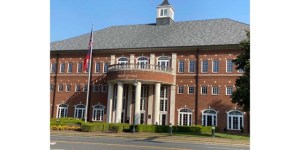Historical Dalton and Griffin city directories now freely available online
Published 12:41 pm Tuesday, March 2, 2021

- Dalton-Whitfield library changes some programming, hours
The Georgia Public Library Service has digitized volumes of Dalton and Griffin city directories respectively belonging to the Dalton-Whitfield County Public Library, part of the Northwest Georgia Regional Library System, and the Griffin-Spalding County Library, part of the Flint River Regional Library System. The 11 full-text searchable volumes date from 1940-1963 and are freely available in the Digital Library of Georgia.
The digital collection is part of a statewide initiative by the Georgia Public Library Service to digitize Georgia’s public domain city directories. Previously digitized directories include those from Albany (1922-1949), Athens (1889-1958), Atlanta (1867-1922), Columbus (1859-1912), Gainesville (1882-1960) and Macon (1860-1899).
Trending
Large volumes of print city directories have long been a vital part of many libraries’ local collections. According to Flint River Regional Library System public services librarian Evans Millican, “As time has passed, the directories have become a useful source for genealogists searching for family roots and related information. Converting these old directories to a digitized format allows them to be perpetually used by patrons without concern for handling deteriorating paper copies.”
Library patron Bitsy McFarland of Dalton agrees. She uses public library resources for much of her own genealogical research, frequently referencing city directories when trying to locate family: “Sometimes I can’t remember who married who or what business they started, so having the city directories online is such a help.”
City directories provide details of local history, antedating the phone book as a listing of residents, businesses, organizations and streets. In addition to basic location information, they frequently provide local governmental and civic information, street maps, church and cemetery information, and historical details about the city and surrounding areas. Information about individuals typically includes the resident’s name, title or salutation; home address; marital status and spouse’s name; race; occupation, and, if applicable, information about business ownership.
“City directories are a wealth of information,” said Betsy Powell, technology services librarian for the Northwest Georgia Regional Library System. “Directories offer details that can help researchers find out which business operated at a particular address or what occupation their relatives held in a given year. Having access to an online, searchable document makes these resources more accessible to people throughout the country who might have an interest in Dalton and the surrounding areas.”
Details in the collections about residence and residents make city directories ideally suited for student, educator and professional research, and those working remotely will enjoy increased access to volumes that were previously only available on site at their local library.
“The ability to study library resources remotely has become more important than ever given our current health crisis,” said Powell. “Instead of traveling to the library and handling fragile materials, library patrons can now search the directories online from the comfort of their home — or anywhere.”
Trending
Selected items from the collection:
• Dalton city directory, 1940 (with map of “Dalton and Bedspread Boulevard along The Dixie Highway,” page 20): https://dlg.galileo.usg.edu/zgk-dw/dalcd/pdfs/dir-dalton1940.pdf.
• Polk’s Dalton city directory, 1963, including Brookwood, City View and Pine Hills (alphabetical list of names beginning on page 347): https://dlg.galileo.usg.edu/zgk-dw/dalcd/pdfs/dir-dalton1963.pdf.





